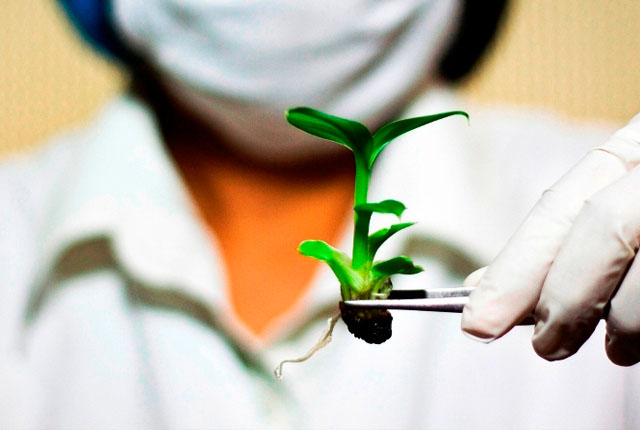Plot No.:87-952,Near Khandual Temple,Dumduma,Ranasinghpur,Bhubaneswar,Odisha-751019
- cptcbinfo@gmail.com
- 91 9777761525
Biotechnology is a broad discipline in which biological processes, organisms, cells or cellular components are exploited to develop new technologies. New tools and products developed by biotechnologists are useful in research, agriculture, industry and the clinic.
Biotechnology has known since long time ago, when human beings realized that they could plant their own crops and breed their own animals, they learned to use biotechnology.
The tissue culture problem was suggested by Schleiden and Schwann's cell theory in 1838. The first experiment was done by Haberlandt in 1902. Following Carrel's success with animal cells, encouraging results were obtained on plants tissues by Gautheret in 1934 and the problem was definitely solved in 1939, independently by Gautheret, Nobécourt and White. Plant and tissue culture is the science of growing plant cell, tissues or organs isolated from mother plant, on artificial media. It includes techniques and methods used to done the research into many botanical disciplines and has several practical objectives.
Plant tissue cultures have become important for pursuing a wide range of fundamental and applied problem in research and development. The techniques encompass a variety of procedures used for specific purposes. Biochemical and growth studies are widely employed in the growing of unorganized cells on agar or in liquid suspension. The culture of segments of stems, roots, leaves or cells provides system to study differentiation, morphogenesis and plant regeneration. Shoot apex culture methods leading to plant regeneration have been adopted for plant propagation and production of virus free stock. The culture of anthers and pollen provides new approaches to haploid plant formation. Recently the technology has been extended to include the isolation and culture of plant protoplasts which are employed in fusion and somatic cell hybridisation.
The advantages of plant tissue culture are it can produce plants in large quantities that are healthy, free from diseases, uniform in their shape and output, plants with better flowers, odors, fruits or any other properties of the plants that are beneficial to the human beings. Second, the plant tissue used (explant) is free from pathogen and is stored in-vitro, enabling safe exchange of plant genetic material between nations. Last , to produce plants anytime we want although the climates are not appropriate to produce a plant. Moreover, if seed is not available, it is possible to produce a plant with this method.
Whereas, the disadvantages of plant tissue culture are if large scale production is being thinking, the costs of the equipment are very expensive. Second, the procedure is very variable and it depends on the type of the species so sometimes it needs trial-and-error type of experiments if there is not any review about that species. Beside, the procedure needs special attention and diligently done observation. Next, infection may continue thorough generations easily if possible precautions are not taken. Last, plant tissue culture can decrease genetic variability.

